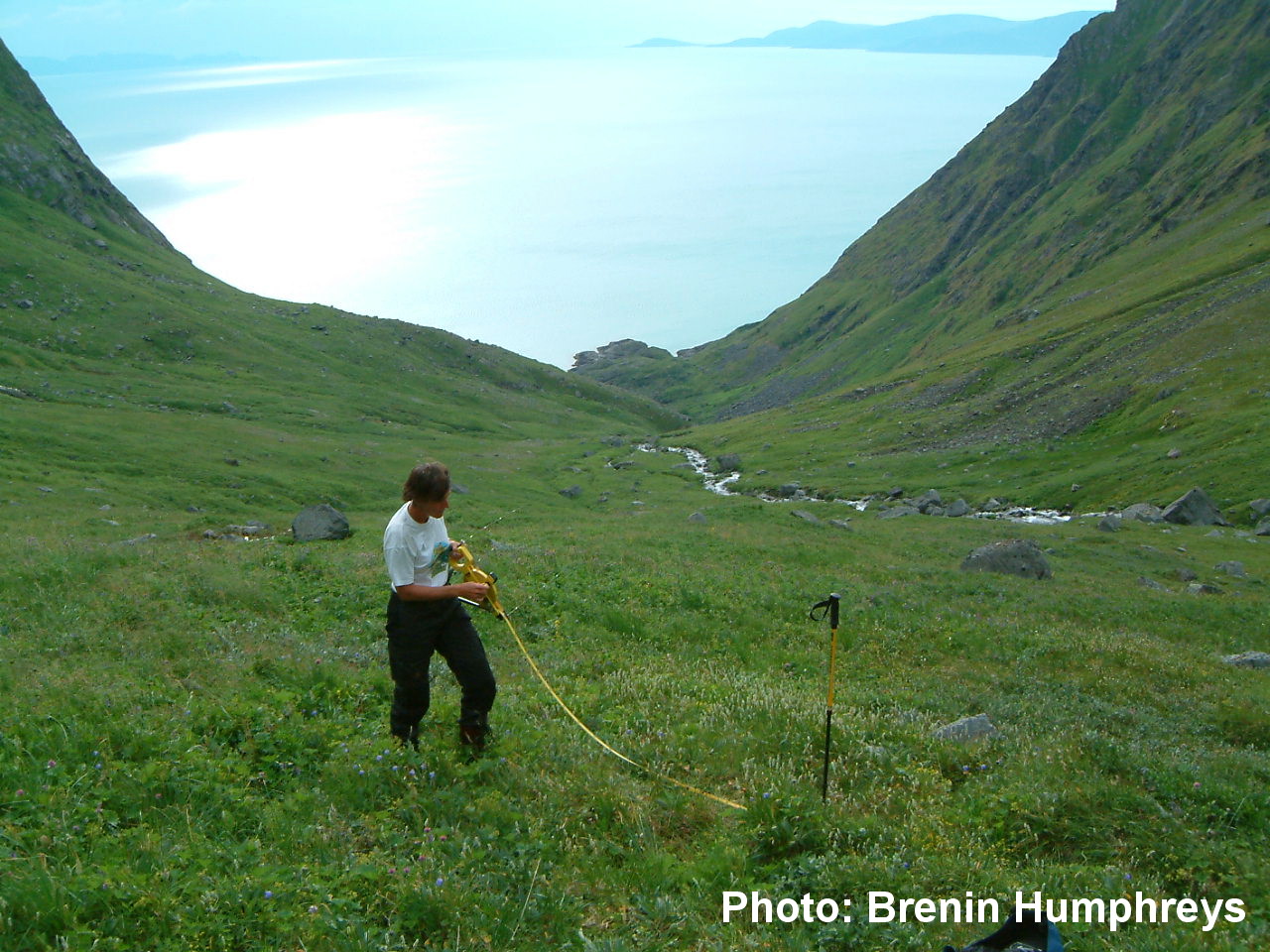| Plant-herbivore interactions
Plants are highly dynamic, and these dynamics must be tracked by the herbivores that are dependent on these plants as food. The dynamic nature of plants is especially evident in spring, when plants in alpine/arctic ecosystems, like that of Finnmark, start producing new green and nutrient rich tissue. Plants then change throughout the summer season, often decreasing their quality as food for herbivores. However, more subtle dynamics are those of species replacements in vegetation. Such changes may take years in vegetation where most species are perennial, i.e. the plants live for several years and have extensive vegetative reproduction. Mammalian herbivores can impact on such species replacements through their activities like browsing and grazing, their nutrient deposition via urine, faeces and carcasses, and their soil disturbance by their trampling and digging. Mammalian herbivores can by these activities significantly affect how vegetation develops, and hence the quality of the vegetation as food to the herbivores in the future.
|
 |
In Ecosystem Finnmark we study interactions between mammalian herbivores, especially reindeer, and vegetation . We use large scale designs in order for our research on plant-herbivore interactions to be less context based. We focus on aspects of vegetation that are essential for the quality of vegetation as food to the herbivores, and we focus on aspects important for the continuous development of vegetation. Our studies encompass reindeer effects on thicket habitats, plant functional group abundance (Bråthen et al 2007b), plant phenology, plant diversity , endozoochory (seed dispersal by animals through their digestive tract) (Bråthen et al 2007a), forage grass quality modifications through silica content in cooperation with Eeva Soininen or endophytes (fungi internal to the plant that produces mycotoxins) in cooperation with Victoria Gonzalez and the GAPS IPY project, and more. |
